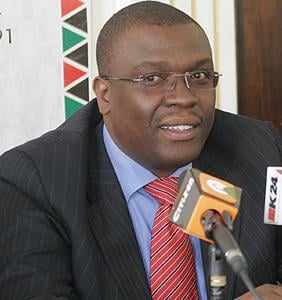UoN emerges Africa’s sixth best varsity, reveals report

Kenya has nine universities ranked among the top 100 in Africa according to a newly released survey.
University of Nairobi appears among the top ten in the ranking at position six on the continent followed by Kenyatta University (28), Strathmore University (42), Jomo Kenyatta University of Agriculture and Technology (49) and Mount Kenya University (51).
Others in the top 100 slots in the 2023 African Universities survey conducted by UniRanks, a global university ranking organisation are United States International University Africa (65), Egerton University (81), Moi University (82) and Methodist University (97).
South Africa takes the lion’s share with 19 universities dominating most of the positions in the top 100 and seven among the top ten.
South Africa’s University of Cape Town clinched the top position, followed by compatriots from the same country; University of Witwatersrand, University of Pretoria and Stellenbosch University.
Knowledge transfer
Egypt’s University of Cairo was placed fifth overall, a slot ahead of the University of Nairobi. Egypt has 15 universities among the top charts, as Nigeria and Algeria share the spoils with 10 universities at the top.
The rankings were based on research, knowledge transfer, international outlook and teaching among other performance indicators which also included accreditation by relevant higher education bodies in their respective countries.
In Kenya, University of Nairobi maintained its lead at position one followed by Kenyatta University, Strathmore University, JKUAT and MKU dominating the first five slots in that order.
Globally, the University of Nairobi is ranked in position 924, while South Africa’s University of Cape Town takes position 236. United States’ Harvard University has remained at the top for six years consecutively.
Meanwhile, education experts have advised that the National Government-Constituency Development Fund (NG-CDF) should be used to build infrastructure for basic education and for development projects geared to create employment in the constituencies instead of funding bursaries for post-graduate students in local and foreign universities.
A panel of educationists say it is a shame to see PhD and Masters students walking into universities and colleges flashing cheques from the constituency kitty popularly called CDF.
Funding infrastructure
“It’s unfair for someone studying for Master’s degree to get CDF funding; it’s immoral,’’ said Maliba Arnold Nyajayi, the Strategic Communication Advisor in the office of Secretary General United Democratic Alliance (UDA).
He said although CDF has done well in funding infrastructure in primary and secondary schools, more money should be allocated to this sector.
“The NG-CDF is not a bursary because of the way it is structured. Sometimes all students in a school get a flat rate of Sh500 to Sh5, 000 each, which might not help all the needy students,” Nyajayi said.
On his part, the Kenya National Association of Private Universities Secretary General Dr Vincent Gaitho recommended that a Bill be introduced in Parliament to authorise bursary kitties to become revolving funds so that those who benefit pay back.
“Let’s make it sustainable through a revolving fund since we are developing human capital that eventually should become useful to the country,” he added.












